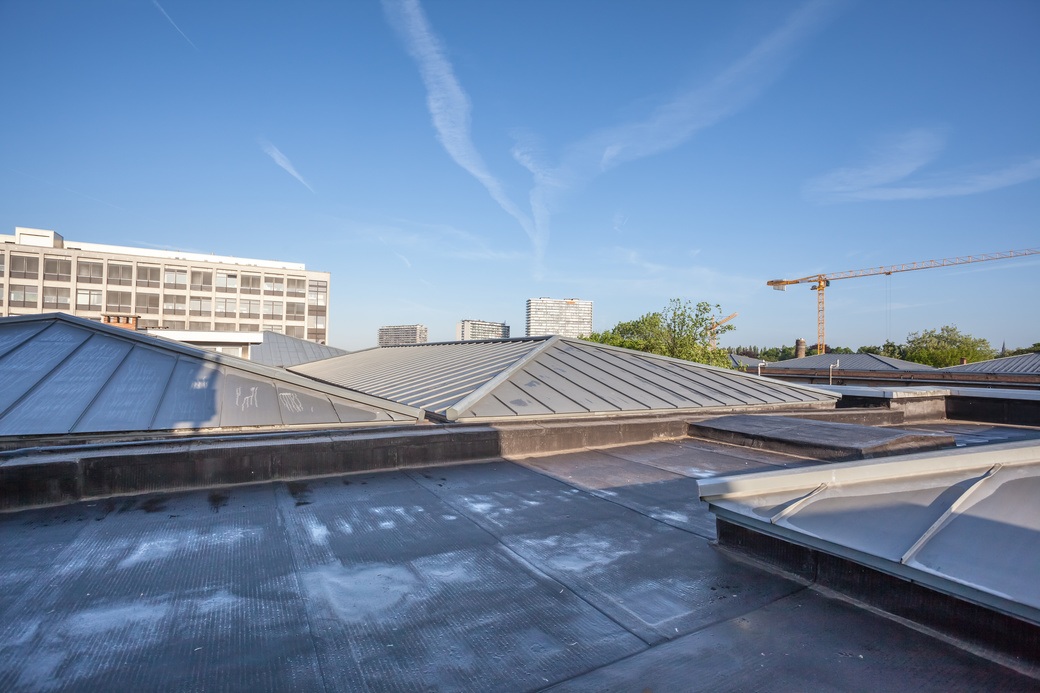When it comes to industrial properties, the roofing system plays a crucial role in providing protection, structural integrity, and energy efficiency. Selecting the right type of industrial roofing is essential to ensure the longevity and functionality of your property. In this article, we will explore various industrial roofing options and guide you in choosing the best one for your specific needs.
The importance of industrial roofing.
Industrial buildings house valuable assets, equipment, and personnel. An appropriate roofing system safeguards these investments against weather elements and ensures a secure working environment. A well-designed industrial roof can also contribute to the energy efficiency and reduce long-term maintenance costs.
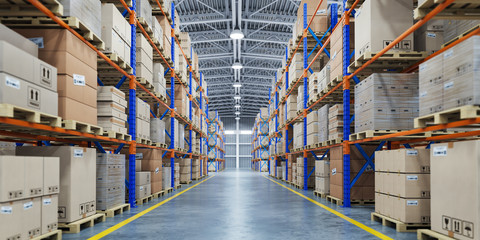
Factors to consider before choosing the right roofing material.
Before selecting an industrial roofing type, several crucial factors need consideration. These include :
- Building Structure and Design: The architecture and structure of your building will impact the choice of roofing materials. Factors like load-bearing capacity and slope play a role in determining the appropriate roofing system.
- Budget and Cost: Your budget will influence the roofing material and installation costs. It’s essential to find a balance between quality and affordability while considering long-term savings.
- Durability and Longevity: The lifespan of the roofing material is a vital factor. Investing in a durable roof will save you from frequent repairs and replacement.
- Weather Resistance : The roofing material should be able to withstand the prevailing weather conditions in your area, including heavy rain, snow or extreme heat.
- Energy Efficiency : Choosing an energy-efficient roofing material can significantly impact your property’s heating and cooling costs.
- Environmental Impact: For eco-conscious property owners, opting for a sustainable and environmentally friendly roofing material is crucial.
Once you have taken into consideration these factors, it is important to understand the different types of roofing solutions and the pros & cons of each.
Metal roofing
Metal roofing is a popular option for industrial properties due to its exceptional durability and versatility. It is available in various styles and finishes, such as standing seam, corrugated, or metal shingles, allowing you to find the perfect match for your property.
The pros of Metal roofing
- Long lifespan, up to 50 years or more.
- High resistance to fire, insects, and rot.
- Reflective surface for improved energy efficiency.
- Low maintenance requirements.
The cons of metal roofing
- Higher upfront costs
- Not resistant to extreme temperatures, the metal can expand and contract in response to high and low temperatures.
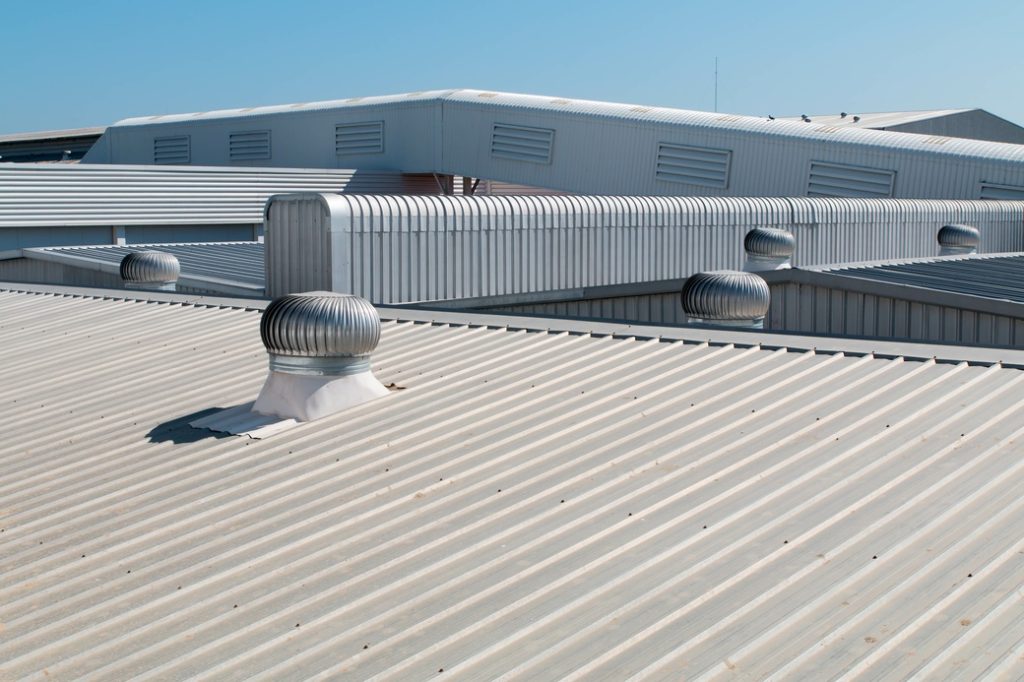
Single-ply roofing
Single-ply roofing membranes, typically made of EPDM, PVC, or TPO, offer a lightweight and cost-effective solution for industrial properties.
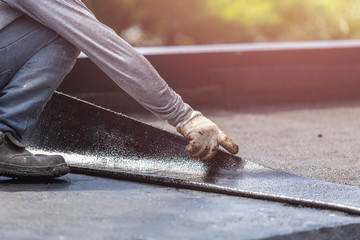
The pros of Single-Ply Roofing
- Easy and quick installation process
- Resistant to UV rays and chemicals
- Energy-efficient, leading to reduced utility bills.
- Light-weight and cost-effective.
The cons of Single-Ply Roofing
- Less durable than metal roofing
- Prone to Punctures and tears if not maintained properly.
Built-Up Roofing (BUR)
Built-Up Roofing (BUR) consists of multiple layers of bitumen and reinforcing fabrics. It has been a reliable choice for industrial properties for many years.
The pros of BUR Roofing
- Excellent waterproofing capabilities.
- Can withstand heavy foot traffic.
- Offers good insulation properties.
The cons of BUR Roofing
- Professional installation is required.
- Long installation duration
- Can be heavy, building needs to withstand the weight.
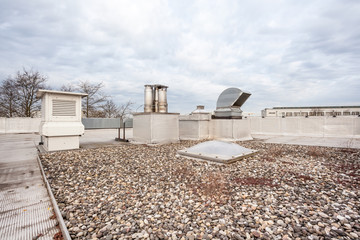
Modified Bitumen Roofing
Modified bitumen roofing is an evolution of traditional asphalt roofing. It offers enhanced durability and weather resistance, making it suitable for industrial applications.
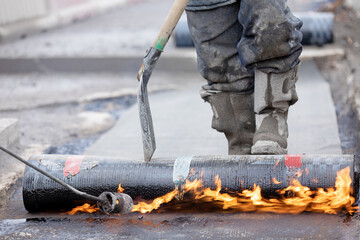
The Pros of Modified Bitumen Roofing
- Superior weather resistance.
- Flexibility, allowing it to expand and contract with temperature changes.
- Can be installed as a
- multi-ply system for added protection.
The Cons of Modified Bitumen Roofing
- Installation may require an open flame, making safety precautions essential.
- Regular maintenance is necessary to extend the lifespan.
TPO Roofing
Thermoplastic Polyolefin (TPO) roofing is known for its energy efficiency and environmental benefits. The white polyolefin membrane reflects heat instead of absorbing it, reducing the heat entered the building.
The pros of TPO Roofing
- Reflective surface for energy efficiency.
- Resistant to Mould, dirt, and tears.
- Environmentally friendly and recyclable.
The cons of TPO Roofing
- TPO roofing may not be suitable for areas with extreme temperature fluctuations.
- The quality of TPO membranes can vary, so choosing a reputable manufacturer is crucial.
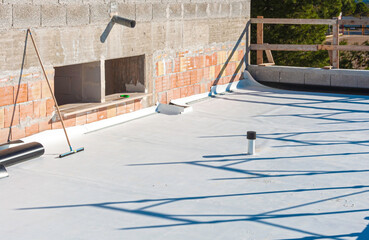
EPDM Roofing
Ethylene Propylene Diene Monomer (EPDM) roofing is a synthetic rubber material that offers exceptional durability and low maintenance requirements.
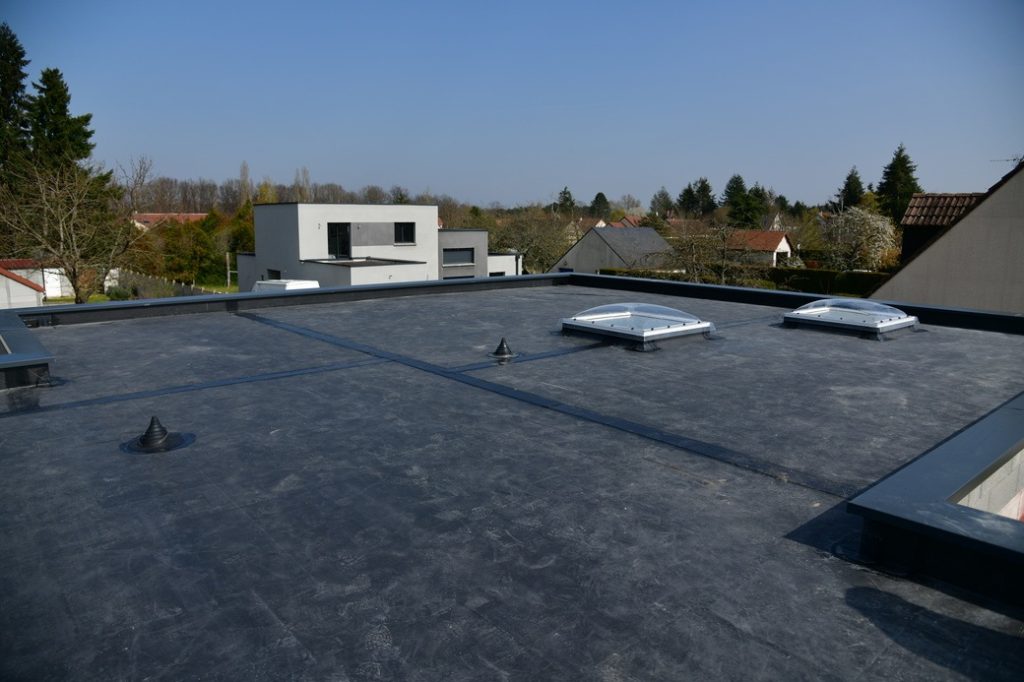
The pros of EPDM Roofing
- High resistance to ozone, UV rays, and chemicals.
- Easy and cost-effective repairs if damaged.
- Long-lasting and can endure harsh weather conditions.
The cons of EPDM Roofing
- Dark-coloured EPDM roofs can absorb heat, leading to higher cooling costs.
- It may require proper installation techniques to prevent water ponding.
PVC Roofing
Polyvinyl Chloride (PVC) roofing membranes are known for their strength and resistance to chemicals.
The pros of PVC Roofing
- Exceptional chemical resistance.
- Strong and durable material.
- Fire-resistant and self-extinguishing.
The cons of PVC Roofing
- PVC roofing can be relatively expensive.
- Installation must be done carefully to avoid
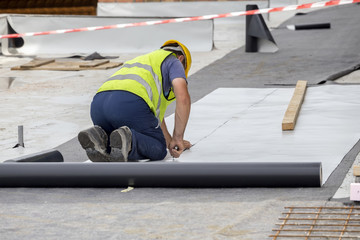
Green Roofing
Green roofing involves the installation of vegetation on the rooftop, providing a sustainable and eco-friendly solution.
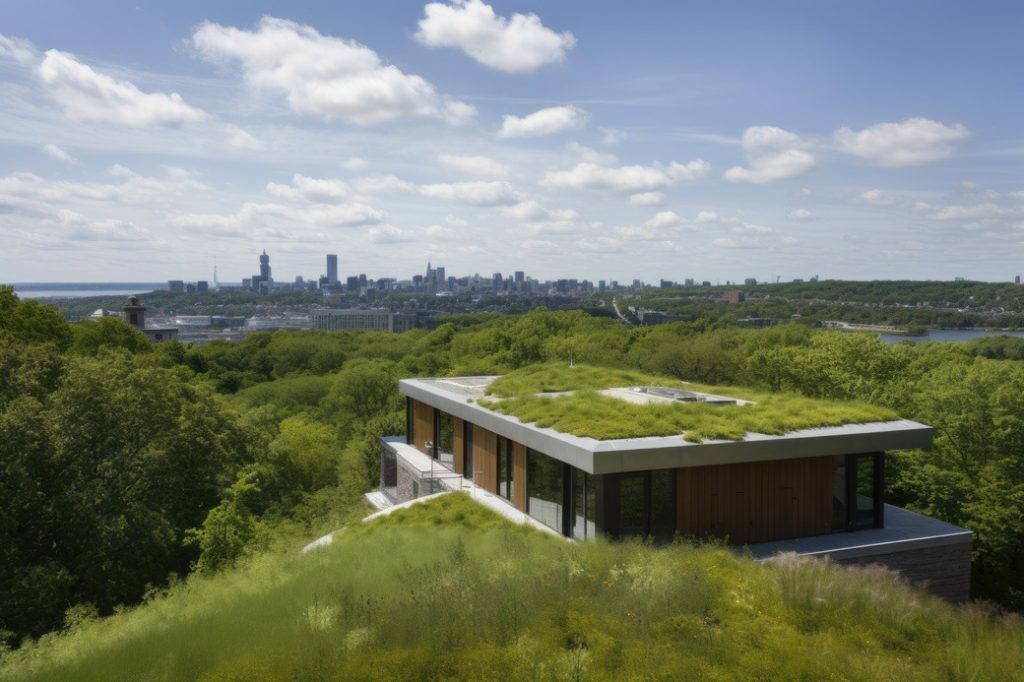
The pros of green Roofing
- Enhanced insulation, reducing heating and cooling costs.
- Improved air quality and reduced carbon footprint.
- Aesthetically pleasing and can create a green oasis in urban areas.
The cons of green Roofing
- Green roofing requires specialised design and maintenance.
- Weight load calculations must be performed to ensure the building’s structure can support the added weight.
After choosing the right roofing material for you, it is also important to consider the maintenance and inspection of the roof.
Having regular roofing inspections is important to maintain the structure and ensure the roof is at optimal. Roof inspections are also important to ensure you are compliant with roofing regulations like the MEES (Minimum Energy Efficiency Standard ) regulation, Without meeting the MEES compliance, you could face unwanted fees and fines.
When carrying out regular roof inspections you can:
- Identifying and addressing minor issues before they escalate.
- Extend the lifespan of the roofing material.
- Ensure compliance with warranty requirements.
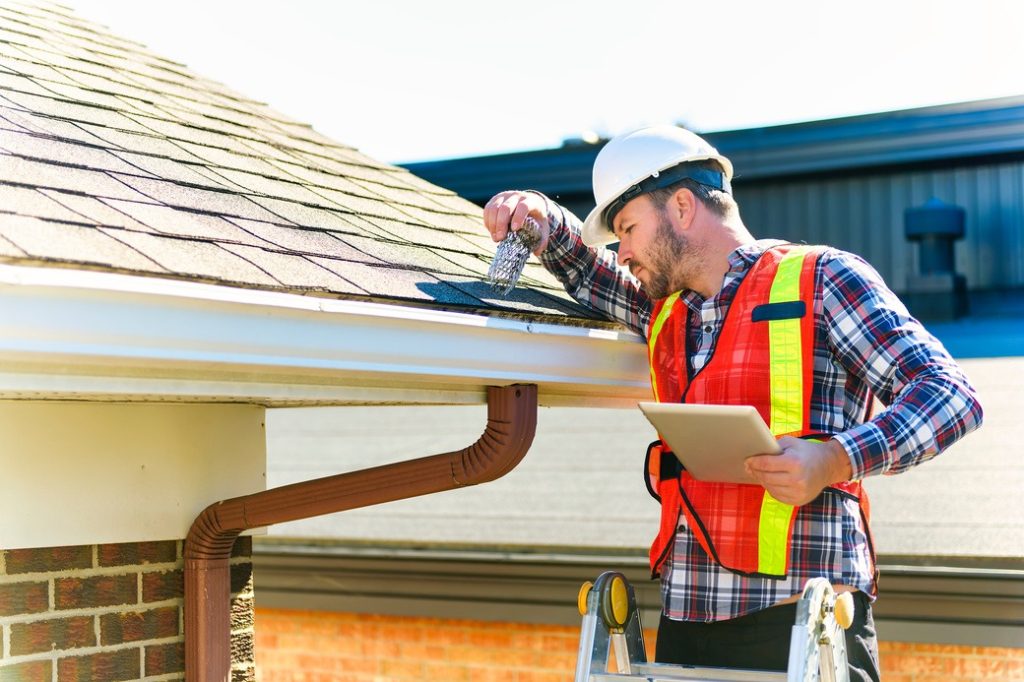
Selecting the best type of industrial roofing for your property is a significant decision that impacts the building’s longevity, energy efficiency, and overall functionality. If you need help deciding what the best type of roofing solutions is for your property, don’t hesitate to contact us; a member of our team can discuss your needs and requirements so we can provide the best solution for you.

